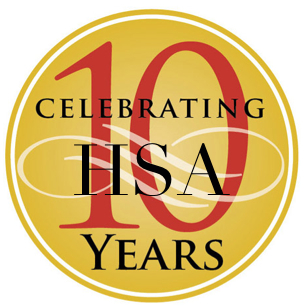 There are some larger than life personas residing in Dallas who have had a profound impact on shaping our nation's health care system. It was December of 2003 when President Bush had just signed into law the Medicare Prescription Drug Improvement and Modernization Act. John Goodman, head of the Dallas based National Center for Policy Analysis (NCPA), helped give birth to provisions of the bill having contributed much of the thinking around HSA's and how a consumer's right to vote with their own pocketbook could change the health care marketplace.
While Goodman may have been the mother who conceived of the HSA and George W. Bush the father of the bill, this tax-advantaged baby got delivered to my team's front door step while consulting with a Fortune 500 client out of Austin, TX. It was 2003 and this company's leadership team was wrestling with an unsustainable health trend and a culture ready for change. They were the first and largest company in Texas to launch a qualified High Deductible Health Plan (HDHP) with an HSA in 2004. From conception of the design to the final delivery to employees, this work was significant and groundbreaking as employees at this company began to learn to use insurance for its intended purpose.
There are some larger than life personas residing in Dallas who have had a profound impact on shaping our nation's health care system. It was December of 2003 when President Bush had just signed into law the Medicare Prescription Drug Improvement and Modernization Act. John Goodman, head of the Dallas based National Center for Policy Analysis (NCPA), helped give birth to provisions of the bill having contributed much of the thinking around HSA's and how a consumer's right to vote with their own pocketbook could change the health care marketplace.
While Goodman may have been the mother who conceived of the HSA and George W. Bush the father of the bill, this tax-advantaged baby got delivered to my team's front door step while consulting with a Fortune 500 client out of Austin, TX. It was 2003 and this company's leadership team was wrestling with an unsustainable health trend and a culture ready for change. They were the first and largest company in Texas to launch a qualified High Deductible Health Plan (HDHP) with an HSA in 2004. From conception of the design to the final delivery to employees, this work was significant and groundbreaking as employees at this company began to learn to use insurance for its intended purpose.
According to the Employee Benefits Research Institute (EBRI), since the bill was signing into law, HSAs have since grown to 16.6 billion dollars in assets. In 2013, these assets grew 5.3 billion, a jaw dropping 47% increase over 2012 assets. Meanwhile, Health Reimbursement Arrangements (HRAs) are moving in the opposite direction with assets shrinking by 2% to 5.7 billion dollars last year.
There is a massive shift taking place in the market as consumer's continue to shoulder more of the out-of-pocket expense of health care and demand greater transparency over quality and cost. It has forced hospitals and physicians to cope with collections and bad debt since "we the people" are not always as reliable paying our bills as a large insurer. HSA linked plans have also sparked innovations from new swipe-card technology to alternative forms of free market care delivery.
While our country's legislators and many employers are currently fixated on purchasing health insurance, the real challenge over the next decade will be how incentives can be aligned to produce systemic behavior change that leads to the reduction and production of disease.
In 2013, more than 15 million individuals were enrolled in HSA-linked plans, a 50% increase in just three years. In 2014, reports indicate about 18% of employees will enroll in a tax-advantaged accounts linked to a high deductible plan. Here are a few reasons why HSA's will continue to thrive over the next decade:
1. Taxes are high - Marginal tax rates are at 39.6% and corporate taxes exceed those of other industrialized countries. Adopting tax-efficient plan design strategies like maximizing annual and catch-up contribution limits and using captives where appropriate will make sense for astute plan sponsors who care enough to reduce their own corporate and their employee's tax burden.
2. Qualified High Deductible Plans Are No Longer "High" - The minimum deductible and out-of-pocket requirements may have seemed high in 2003, but the 2014 minimum annual deductible of $1,250 is not that far from the $1,100 average annual deductible nationwide and well below the $1,700 average for small firms (under 200 workers). By the way, just because the legislators called it a "high" deductible health plan does not mean you need to promote it as such when you roll it out to your employees. Ask your benefits communication team to come up with something snappier.
3. They cost employers less - HSA linked plans cost employers about $1,700 less per employee compared with traditional PPO plans, according to a 2013 Mercer survey. In one of the first studies of its kind, EBRI found HSA linked plans reduced total health care spending by 25% in its first year and over the succeeding three years — albeit at a slower pace.
So Happy Birthday HSA ... It's time to toast you and those who nurtured you to ten. Here's to another a decade of market-driven progress enabling those who take measurable steps to improve their health to continue investing in themselves.
